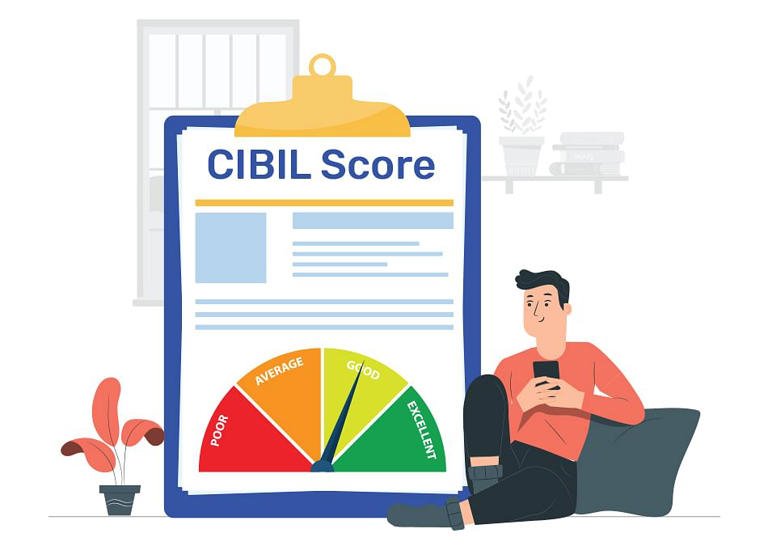Money
4 important things a beginner should do to build a good credit score
 A low or poor CIBIL Score is one of the reasons why a lender may reject your application for new credit. This is because a CIBIL or credit score is among the key determinants of your creditworthiness, affecting how easily and affordably you can get credit when you need it.
A low or poor CIBIL Score is one of the reasons why a lender may reject your application for new credit. This is because a CIBIL or credit score is among the key determinants of your creditworthiness, affecting how easily and affordably you can get credit when you need it.
Credit bureaus calculate your credit score based on factors like your repayment discipline, credit mix and utilisation, and credit history. Your CIBIL Score is crucial to get approval on your loan or credit card application and get the best deals.
If you check your credit score and discover that you have a poor or no credit score, fret not, as there are proven ways to build and maintain a great CIBIL Score. To ensure that you get started in the right direction and avoid the common pitfalls, take a look at the following tips for beginners.
Get a secured or unsecured credit card
Getting a credit card is one of the easiest ways that can help you get started on building a good score as someone new to credit. You can choose from two credit cards: secured or unsecured. While you may already know what unsecured credit cards are, you may not get one easily if you have no credit history.
In such cases, a secured credit card can be a good way forward. Such credit cards are backed by collateral such as a fixed deposit. These cards work the same way as unsecured cards, giving you rewards points, waivers, and EMI conversion facilities. However, make sure you understand the fees, interest rates and other charges before you go forward. To build a credit score, ensure you use the credit card for daily purchases and pay off the full amount due each month, not just the minimum balance due.
Don’t make multiple credit applications at once
If you have no score or a low credit score, the chances are that your credit application may get rejected. And while that may tempt you to apply again with a different lender, you should hold off. Multiple applications negatively affect your score because each lender will send an enquiry to check your credit score. Registering multiple enquires in a short time temporarily dips your score. Making too many applications for credit cards (or loans) is a sign of credit-hungry behaviour, which works against you.
Become an authorised user of a credit card
An authorised user is added to an existing credit card owned by, say your parents or siblings. If you have no credit score, this can be one of the easiest ways to build your score. As an authorised user, you can piggyback on the main accountholder’s credit profile and use the card responsibly. Be wary about your actions in this case, as they directly affect not just your credit score but also that of the main account holder. Subsequently, you should also be aware about the main accountholder’s CIBIL Score. Free check credit score offered on various platforms will help you easily track your score. This way, you can proceed safely yet cautiously.
Use your credit card regularly but not up to the limit
After you get your credit card, make good use of it. Regular use and timely repayment will help you build a credit history which is essential for building a credit score. Try to use your credit card every month so you can not only build history but also get into the habit of timely repayment. While doing so, make sure that you don’t use it to the maximum limit each month. As a general rule, try not to use more than 30% of your credit limit. This is called the credit utilisation ratio, which affects your CIBIL Score. A high utilisation ratio makes you seem credit-hungry and lowers your score. Carry out a free CIBIL Score check regularly to monitor the effect of usage on your score.
Apart from the above, you can also build your credit score by making EMI purchases, repaying them on time, and taking a small personal loan. If you have trouble getting a loan on your own without any credit history, you can take a joint loan or have your parents sign on as guarantors. This way, you can create a credit history of your own as a beginner.
While you may understand the CIBIL Score’s meaning and importance, keep in mind that improving and maintaining it is a meticulous process. It takes time, patience, and diligence to have an excellent score. A smart way to keep track of it is to ensure you carry out a free CIBIL Score check every 3-6 months. Bajaj Finserv allows you to check your credit score in a few simple steps and free of cost. With the help of credit score checking, you can get started on building your score the right way.
-

 Money6 days ago
Money6 days agoBudget 2024: 3 Stocks to Watch with Potential Gains
-

 Money6 days ago
Money6 days ago5 Penny Stocks Gained Up to 23% Last Week: Risky or Rewarding?
-

 Health6 days ago
Health6 days agoHow to Spot Typhoid and Stay Healthy
-

 Money3 days ago
Money3 days agoBihar & Andhra Pradesh Get Infrastructure Boost: Cement Stocks in These Regions Poised to Surge
-

 Money3 days ago
Money3 days agoNew Pension Scheme for Minors in Union Budget 2024: NPS Vatsalya Explained
-

 Money3 days ago
Money3 days agoNavigating Gold Ownership in India: Limits, Taxes, and Your Rights
-

 Health1 day ago
Health1 day agoR Madhavan’s Weight Loss Secrets: Intermittent Fasting and Plenty of Fluids
-

 How to7 hours ago
How to7 hours agoHow to Make Money on YouTube: A Complete Guide to Monetizing Your Channel











